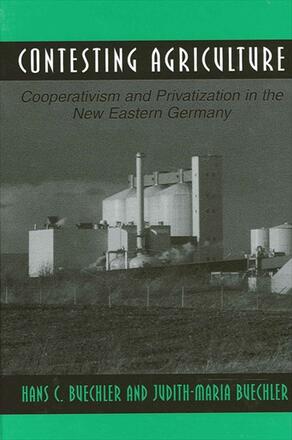
Contesting Agriculture
Cooperativism and Privatization in the New Eastern Germany
Alternative formats available from:
Examines the privatization of agriculture in eastern Germany since 1989.
Description
This analysis of the privatization of agriculture in eastern Germany captures the turbulent times after the fall of the Berlin Wall in 1989 and the subsequent reunification of the two Germanies. Based in large part on oral histories provided by cooperative managers, newly independent family farmers, and westerners who established farms in the east, the authors examine the competitive struggle involved in the transformation from communism to capitalism. Linking the personal to the local, regional, national, and global, they develop a theory of the construction of identities out of past experiences and new challenges, in order to account for the ambiguities and contradictions inherent in the core relations and ideas that constitute the new Germany.
Hans C. Buechler is Professor of Anthropology at Syracuse University and Judith-Maria Buechler is Professor of Anthropology at Hobart and William Smith Colleges. Together they are the coeditors of Migrants in Europe: The Role of Family, Labor, and Politics.
Reviews
"We get to meet people, and we learn about the dilemmas they face in their lives, as well as their view of the crisis period they went through in the initial years of the change. This is a remarkably sympathetic book in the best sense of the term. The authors are greatly at ease in the region. They are native speakers, and one of them comes from a family in the area. As a result, one gains wonderful bonus insights into life in the area and into rural East German culture. " — Gavin Smith, University of Toronto
"The book is resoundingly empirical. The authors have interviewed thirty subjects, or 'consultants,' in their study area, and have allowed them to inform the scholarship. Their voices resonate throughout, their experiences shout from the pages, and their data are there in voluminous quantity. " — Alexander Moore, University of Southern California